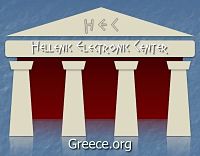Hrant Dink Received Threatening Messages
19.01.2007 19:53 GMT+04:00
/PanARMENIAN.Net/ “We are in deep sorrow due to the murder of Hrant Dink, editor of Agos newspaper. We strongly condemn this cruel act. Dink, a Turkish citizen of Armenian origin, wrote in his column on January 10th that he was receiving threatening messages,” says the press release of ARI MOVEMENT NGO received by PanARMENIAN.Net. In the words Director Rana Birden, he also wrote that he felt like a fearful dove but "knew that the people of this country would not hurt a dove".
“Unfortunately, he was wrong. We call for restraint in social reactions at this sensitive time and relate our condolences to Dink's family, his loved ones, and the staff of Agos Newspaper,” the release says.
19.01.2007 19:53 GMT+04:00
/PanARMENIAN.Net/ “We are in deep sorrow due to the murder of Hrant Dink, editor of Agos newspaper. We strongly condemn this cruel act. Dink, a Turkish citizen of Armenian origin, wrote in his column on January 10th that he was receiving threatening messages,” says the press release of ARI MOVEMENT NGO received by PanARMENIAN.Net. In the words Director Rana Birden, he also wrote that he felt like a fearful dove but "knew that the people of this country would not hurt a dove".
“Unfortunately, he was wrong. We call for restraint in social reactions at this sensitive time and relate our condolences to Dink's family, his loved ones, and the staff of Agos Newspaper,” the release says.










Comment